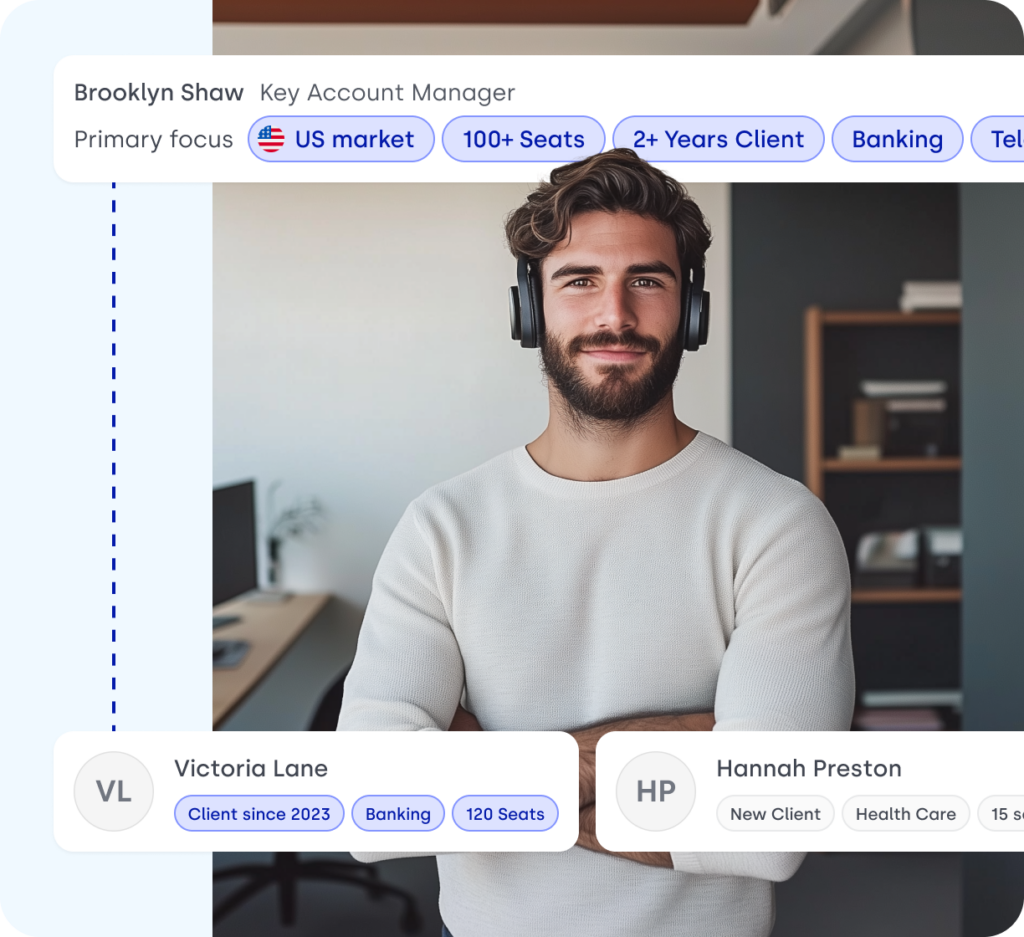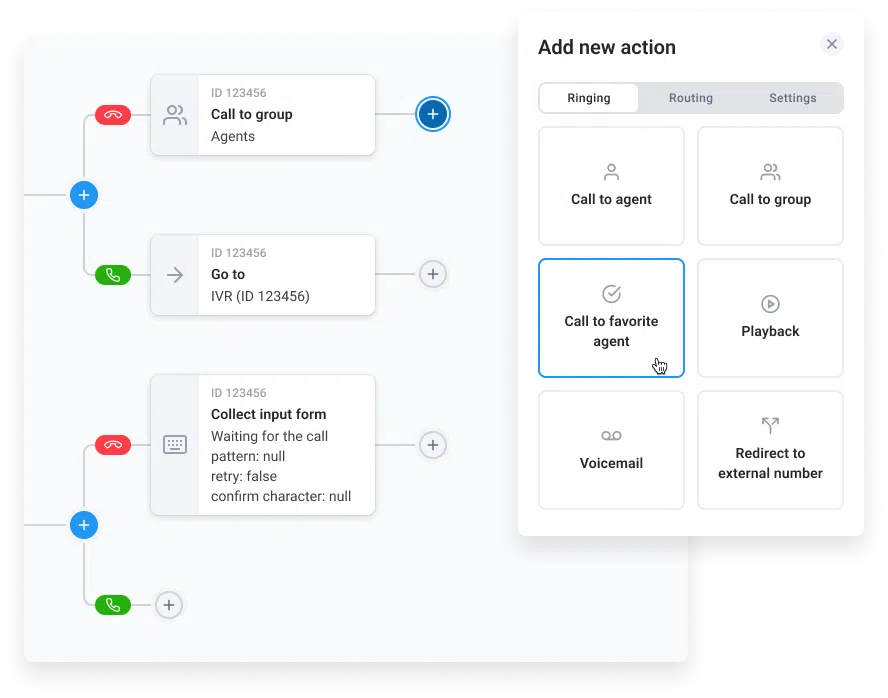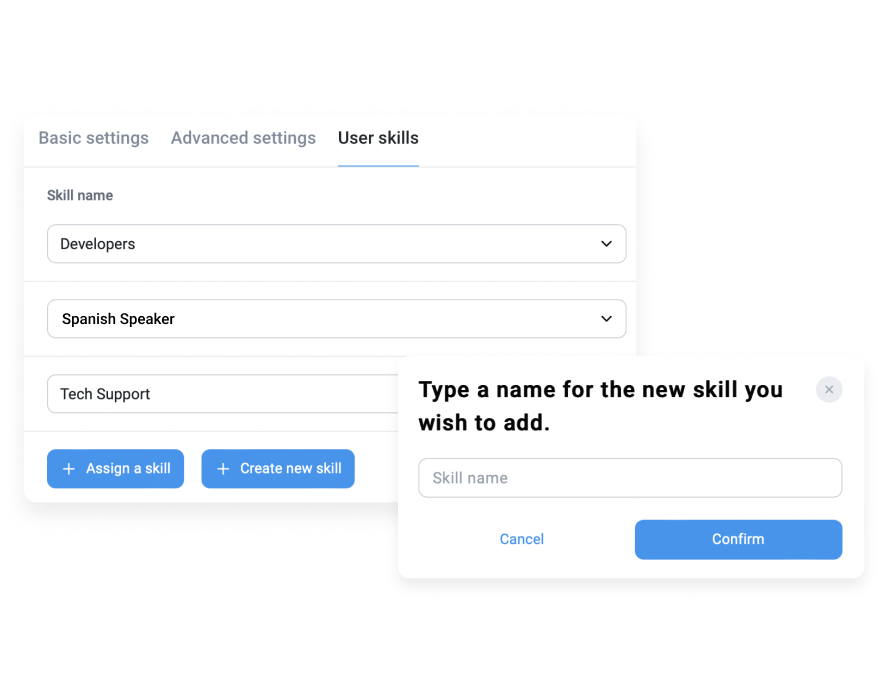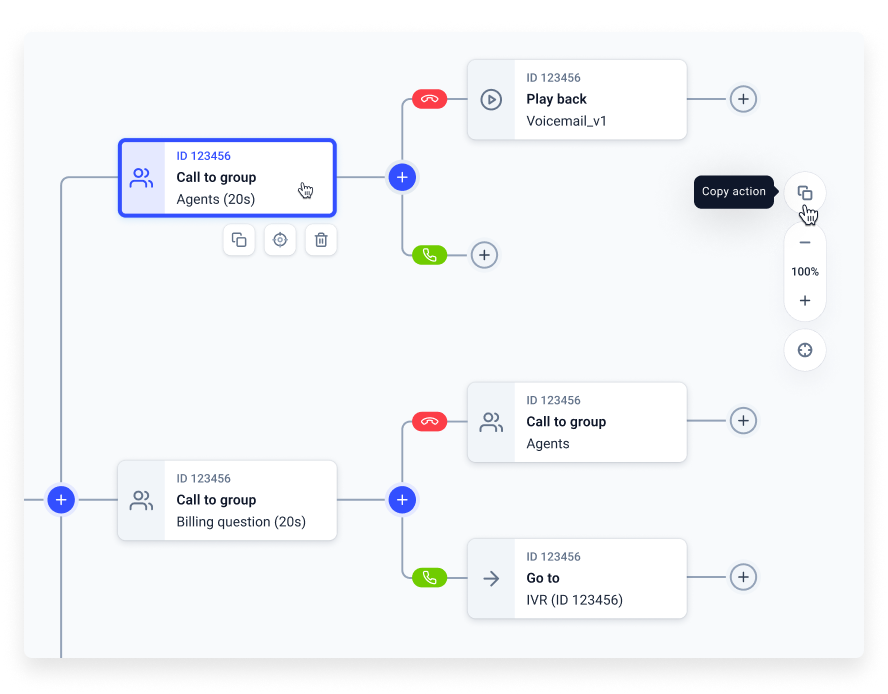Assist Better With Caller-Based Routing
Direct every incoming call to the right agent based on the caller’s data, such as type of number, location, or past interactions. Intelligent call routing helps you deliver personalized, efficient customer service and improve satisfaction.

We’ve helped thousands of global companies
Case studies featuring customers who are building faster.
What is Intelligent Call Routing?
Caller-Based Intelligent Routing is a feature that directs incoming calls to the most suitable agent based on the caller’s profile, previous interactions, and real-time data.
Whether it’s VIP customers getting priority support, callers from Venezuela being routed to Spanish-speaking agents, or long-time customers reconnecting with the same representative, this smart routing system enhances efficiency. It reduces wait times and delivers a personalized customer experience.

How Does IVR Work?
Intelligent call routing system leverages real-time data and caller history to make smart decisions on where to direct incoming calls.
Instead of relying on generic routing, it dynamically customizes call flows based on each caller’s unique profile and needs.
With CloudTalk’s Call Flow Designer, you can effortlessly build and optimize call flows using an intuitive drag-and-drop interface, making complex routing setups easy to implement.

Smart Routing
Guide Your Customers with Confidence
Direct your customers to the right agent or department
in the best way possible.
How to Set Up Caller-Based Routing in CloudTalk
- In your CloudTalk account, click the left-hand side Numbers tab on the Dashboard.
- Click the blue pencil icon next to the number you want to configure.
- In the call flow, click the + icon where you want to insert the condition splitter.
- Choose an action (e.g., route to a specific agent or group) for calls that meet certain criteria.
- Click Save flow to apply your changes

Frequently asked questions
Everything you need to know about the product and billing.
What is the difference between ICR and IVR?
Automated Intelligent Call Routing (ICR) uses advanced algorithms to direct calls based on real-time data, customer history, and agent availability. Interactive Voice Response (IVR), on the other hand, is an automated system that interacts with callers through pre-recorded messages and menu options, guiding them to the appropriate department or agent based on their selections.
What is smart call routing?
Smart call routing is a system that directs incoming calls to the most suitable agent or department based on predefined criteria like customer history, agent skills, or availability. It enhances customer experience by reducing wait times and ensuring that issues are handled by the right person.
What is an intelligent routing number?
An intelligent routing number is a virtual number that leverages smart routing technology to direct incoming calls to the best available agent or team. It often involves analyzing caller data and other factors to make real-time routing decisions, improving the overall efficiency of call management.
What are intelligent call-routing applications?
Intelligent contact routing applications are software tools that help businesses manage incoming calls by directing them to the most appropriate agents. These applications can integrate with CRM systems, use AI to predict caller needs, and adapt routing rules based on real-time data, improving customer service and operational efficiency.
What is an example of intelligent routing?
An example of intelligent routing is a customer support system that routes VIP customers directly to a dedicated team of senior agents, bypassing standard queues. This system uses customer data, such as account status or previous interactions, to make informed routing decisions in real-time.
How many cascading routing levels should a call operation set?
The number of cascading routing levels depends on the complexity of your operations and the volume of calls. Typically, 3 to 5 levels are sufficient to ensure calls are routed efficiently without overwhelming the system or causing unnecessary delays.
What ICR performance metrics should be tracked?
Key ICR performance metrics include call resolution time, first call resolution rate, customer satisfaction scores, average handle time, and call abandonment rates. Tracking these metrics helps assess the effectiveness of your routing system and identify areas for improvement.



Still have questions?
Can’t find the answer you’re looking for? Please chat with our team.
Ready to get started?
Join over 4,000+ modern companies that already trust CloudTalk to have MORE and BETTER calls.











